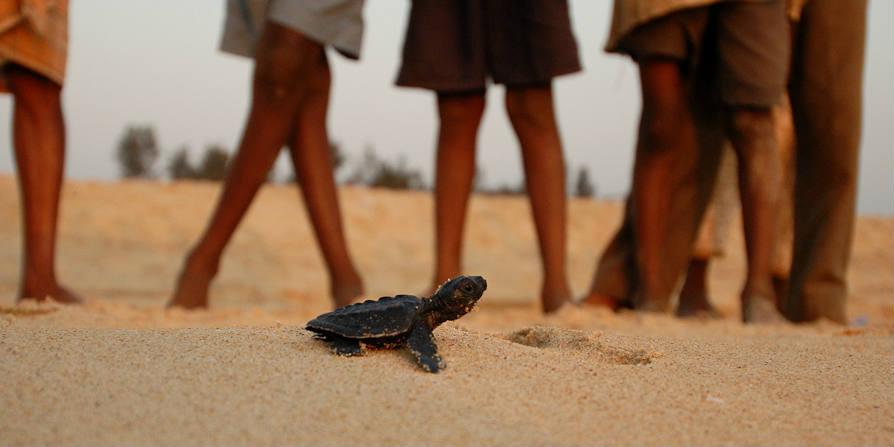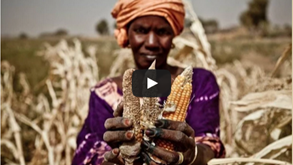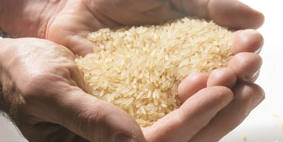
This is the sixth meeting in the series and this month, we changed scale and used the overlapping interests of the three witnesses to explore questions that focus on the impacts of changes in land use, climate change and the demand for resources at a local level.
Dr Toby Gardner, a Research Fellow at the Stockholm Environment Institute joined Barbara Stocking, the Principle of Murray Edwards College and former Chief Executive of Oxfam GB, and Professor Tim Wheeler, the Deputy Chief Scientific Adviser at the UK Department for International Development (DFID) and Professor of Crop Science at the University of Reading.
To help to set the scene for their introductions, they have sent us some papers and a lecture and you can download these by following the links on the right.
Research gaps
All the witnesses agreed that despite the ever increasing influence of global dynamics, local dynamics matter and can have a profound influence on large-scale processes, yet they are often ignored.
In her introduction, Barbara first focused on Kate Rayworth’s ‘doughnut’ economic model where every person has the resources they need to meet their human rights, while collectively living within the ecological means of our planet. Kate joined the Parallel Forum over Skype to discuss this model with them in more detail. Barbara then turned to measures of growth and called for more research into finding alternatives to GDP and argued that the poorest people will be affected the most by changes in climate so need to be our focus.
Toby’s introduction drew on Chapin et al's three approaches to sustainability - managing risks, building resilience to change, and achieving transformation. He argued that researchers should in mind the adage “think global act local”- the fact that we live in an increasingly interconnected world means that acting locally can influence global conditions whether or not we are “thinking globally”. Using examples from his work in Brazil, he added that ricocheting effects across scales are overturning common assumptions – such as fast local dynamics shaped by slowly changing global drivers – and these need to be increasingly recognised and accounted for in our work.
In his introduction, identified a number of evidence gaps related to: the utilisation of food, access to it and the stability of production and supply chains and how to scale this information and apply it to help people make decisions at a local level. Turning to the next generation of research questions, he highlighted the need to bring together different types of data – social, biophysical and economic – when modelling the impacts of climate change on food security.
Wicked problems and questions generated by the open discussion
When talking about climate change or even sustainability, how do we move from saying ‘This is somebody’s fault’ to ‘this is happening, how are we going to solve these issues?
Reducing consumption has been a recurring theme this year and Barbara added to this the concept of de-growth where those who currently consume a lot, consume less. Many discussions focus on specific actions that individuals can make, for example eating less meat and using less energy to heat our homes, but how do we put principles like this into practice on a large enough scale to make a tangible difference?
We only really touched on the role of power, for example power relationships between different actors and the nexus of power and food in relation to consumption and enforcement. Toby argued that the models needed to disentangle power relationships are alien to those who model deforestation, for example, and visa-versa. How can we overcome these huge intellectual and methodological barriers?
Does building resilience to physical, economic and social shocks into societies also imply some degree of greater insulation between countries (or sectors) within the global system?
How do you answer some of the big questions about food security and encompass biophysical, economic and social behavioural aspects of it, without propagating all of the errors and uncertainties amongst each of those components?
Often scientists working at different scales have different ontologies or world views i.e. solving global hunger vs. food sovereignty – how can we reconcile these views?
References for background reading
Stocking, B. (2014) Is there Enough for All of Us? Global Growth, Climate Change and Food Security. The Inaugural Gates Cambridge Annual Lecture, given on the 11th November 2014.
Gardner, T., Godar, J. & Garrett, R. (2015) Governing for sustainability in agricultural-forest frontiers: A case study of the Brazilian Amazon. Stockholm Environment Institute (SEI) Discussion Brief, Published by: Stockholm Environment Institute, Sweden - direct link
Gardner, T. (2013) The Amazon in transition: The challenge of transforming the world’s largest tropical forest biome into a sustainable social-ecological system. Tipping Points, 130-148
Wheeler, T. & von Braun, J. (2013) Climate Change Impacts on Global Food Security. Science, 341, 508-513.
For more information about the Forum or this meeting, please contact Dr Rosamunde Almond (r.almond@damtp.cam.ac.uk)





